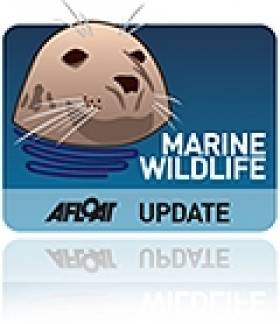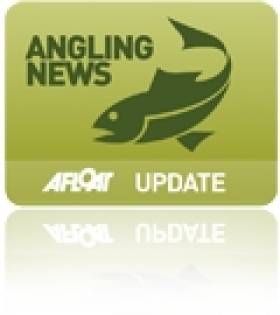Displaying items by tag: Carál Ní Chuilín
'Rogue' Anglers May Shoot Seals Threatening NI Fish Stocks
#MARINE WILDLIFE - Northern Ireland's Green Party has warned that "rogue" anglers may shoot seals that are consuming their fish stocks unless they are relocated, the Belfast Telegraph reports.
The protected seals have been getting into the River Quoile in Co Down, allegedly by way of a damaged fish pass, and decimating the area's fish stocks - much to the consternation of local anglers.
Earlier this week Leisure Minister Carál Ní Chuilín confirmed in a response to a question from Green Party MLA Steven Agnew that department officials have requested the Rivers Agency to carry out repairs on the fish pass.
But she also said that no action can be taken to remove seals from the river "without the approval of the Northern Ireland Environment Agency", adding that her department "does not have the specialist knowledge and equipment to remove the seals".
A Green Party spokesperson described the repair work as "absolutely vital because even if the seals are safely removed from the Quoile they will only make their way back in if the fish pass is not repaired.
"And a rather worrying consideration is that a very small rogue element would be prepared to shoot the seals if a solution is not forthcoming.”
Seal shootings have been much in the news as of late, with gardaí in Waterford investigating attacks on four animals in Tramore.
Freeze on NI Fishing Licence Fees
Northern Ireland's sports minister has announced that there will be no increase in fishing licence fees for the 2012 angling seasons.
Carál Ní Chuilín said that "In light of the current economic climate, I have decided to keep the salmon and inland fishing licence fees at 2011 levels."
It marks the third year in a row that there has been no annual increase in fees for fishing licences.
The Minister added: "I hope this will continue to ease the financial burden on those involved in the commercial fishing sectors and encourage others to enjoy recreational fishing.”
The only changes for next year will be on fishing permits for the Public Angling Estate, which are subject to an inflationary rise of 4.8%.
The NI Department of Culture, Arts and Leisure says it is encouraging all fishermen and women to ensure that they have a rod licence and the correct permit to fish.
Those caught without the necessary documents will be reported with a view to prosecution, it says.
Fishing licences and permits are available to purchase online at www.nidirect.gov.uk/angling

























































